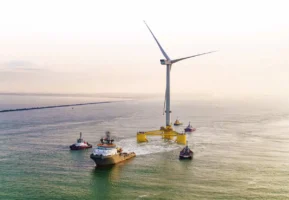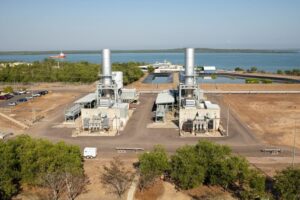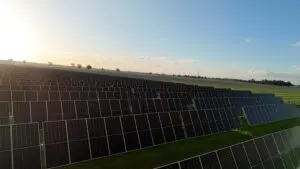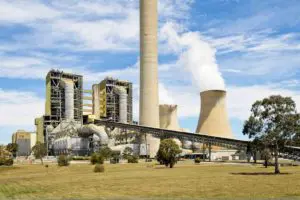When we look back on the first Sydney Energy Forum convened by the Australian Government and the International Energy Agency, it will be seen as a catalyst for a more interconnected and resilient energy grid capable of delivering renewable energy to the growing economies of the Indo-Pacific region.
It signalled to the world that Australia and its neighbours in the Indo-Pacific are ready to cement their part in regional energy supply chain resilience that benefits every country, company and community involved.
This international event had all the hallmarks that the needle is moving in the Indo-Pacific region towards collaboration, multi-lateral support and action that has the real potential to bring to fruition an energy diversification strategy for the region that forms multiple pathways to decarbonisation.
Akin to a smaller scale summit, there were countless bilateral and multilateral meetings and agreements made, including Australia joining the Minerals Security Partnership, alongside the United States, Canada, Finland, France, Germany, Japan, the Republic of Korea, Sweden, the United Kingdom and the European Commission.
The political, financial, public and private sector goodwill required to drive things forward was on display and provides a sense of optimism that it will endure. That being said, it highlighted the seriousness and enormity of the size of the decarbonisation challenge, as United States Secretary of Energy Jennifer Granholm likened it to when someone’s “hair is on fire”.
The scale of renewable energy requirements is huge and the need is urgent. Along with projects themselves, there is an astounding amount of coordination, support and collaboration that needs to continue at scale.
To address this challenge, the themes that were identified at the Forum were diversification, scale and speed.
Every country, every company needs an energy diversification strategy, whether that is about securing supply of renewable energy from multiple jurisdictions (direct transmission of green energy) or whether it is about securing supply from multiple applications (converting green energy into another use).
Diversification of energy supply chains is important too. De-risking of the supply chain has to happen at a country and sector level in, for example, national manufacturing priorities.
Perhaps most encouragingly, it was obvious to all who attended the Forum that Australia, the Australian Government and the Australian private sector can play a pivotal and end-to-end role in making energy supply chains more resilient for the entire Indo-Pacific region.
We have renewable energy sources that can be harnessed. We are creating the manufacturing capability and deploying the technology that will form the spine of the infrastructure needed, the right enabling frameworks and actions are being embraced in every part of the supply chain and all of this plays at the centre of burgeoning ESG-driven economies and financing channels.
Creating new capability in the Indo-Pacific will naturally reduce supply chain risk in the region but, importantly, it will also increase global capacity and lead to the ability for more to be done, sooner. Demand for energy has risen by 50 percent in the last 20 years in South East Asia, and the region needs 565GW of green energy by 2040 if it is to meet its energy needs and decarbonisation imperatives.
This comes off the back of significantly increasing global investment in energy transition drivers. In 2021, global investment in the energy transition totalled $755 billion, up $160 billion from 2020 and included investments across the value chain in renewables, storage, charging infrastructure, hydrogen production, recycling and low-carbon energy devices. Asia Pacific attracted the most investment, at $368 billion, and saw record 38 percent growth during that period. Still, much more is needed to meet the scale of the challenge.
The goodwill of key decision makers is in itself however critical to removing barriers, de-risking and smoothing the way for companies such as Sun Cable in building the infrastructure, deploying the technology and securing the financing to harness renewable energy generated in Australia and transmit it to countries in the Indo-Pacific, starting with Singapore.
It is hopefully the beginning of a seismic shift from focus on who is committing to what carbon reduction goals to a recognition that the benefits of such a transition are shared across economies, geographies, sectors and communities, and are tangibly closer and compelling.
Georgie Skipper is chief government and corporate affairs officer at Sun Cable, responsible for international relations. Georgie was the senior adviser to the Foreign Minister of Australia from 2013-2018.










